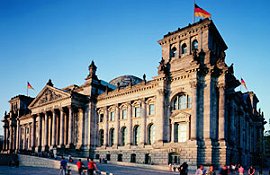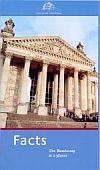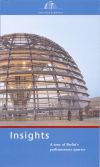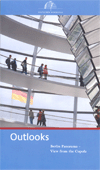The Bundestag in Brief

View of the west portal of the Reichstag Building in Berlin
© German Bundestag
As Germany’s parliament, the German Bundestag stands at the centre of the country’s political life and is its supreme democratic organ of state.
Since 1999, the Bundestag has had its seat at the Reichstag Building in Berlin.
Parliamentary groups
In the last Bundestag elections held on 18 September 2005, 612 Members were elected from five parties. In the current 16th electoral term, the Christian Democratic Union/Christian Social Union (CDU/CSU) forms the largest parliamentary group with 223 seats, followed by the Social Democratic Party of Germany (SPD) with 222 seats. The Free Democratic Party (FDP) parliamentary group holds 61 seats, the Left Party parliamentary group 53 and the Alliance 90/The Greens parliamentary group 51. There are two non-attached Members.
The President of the German Bundestag
The Members elected Dr. Norbert Lammert (CDU/CSU) as President of the German Bundestag.
The legislative process
The legislative process is one of the most important tasks performed by the German Bundestag. All laws are deliberated on and adopted in Parliament. Some acts require the consent of the Bundesrat, the organ through which Germany’s 16 constituent states – the Länder – participate in the legislation and administration of the Federation.
Election of the Federal Chancellor
On 22 November 2005, the Members of the German Bundestag elected Angela Merkel (CDU/CSU) as Germany’s first female Federal Chancellor.
The Committees
The committees of the German Bundestag play an important role in its legislative work. They prepare legislative proposals for adoption in the plenary. The Bundestag sets up committees for specific areas of policy in which Members from all the parliamentary groups deliberate on and revise draft bills.



